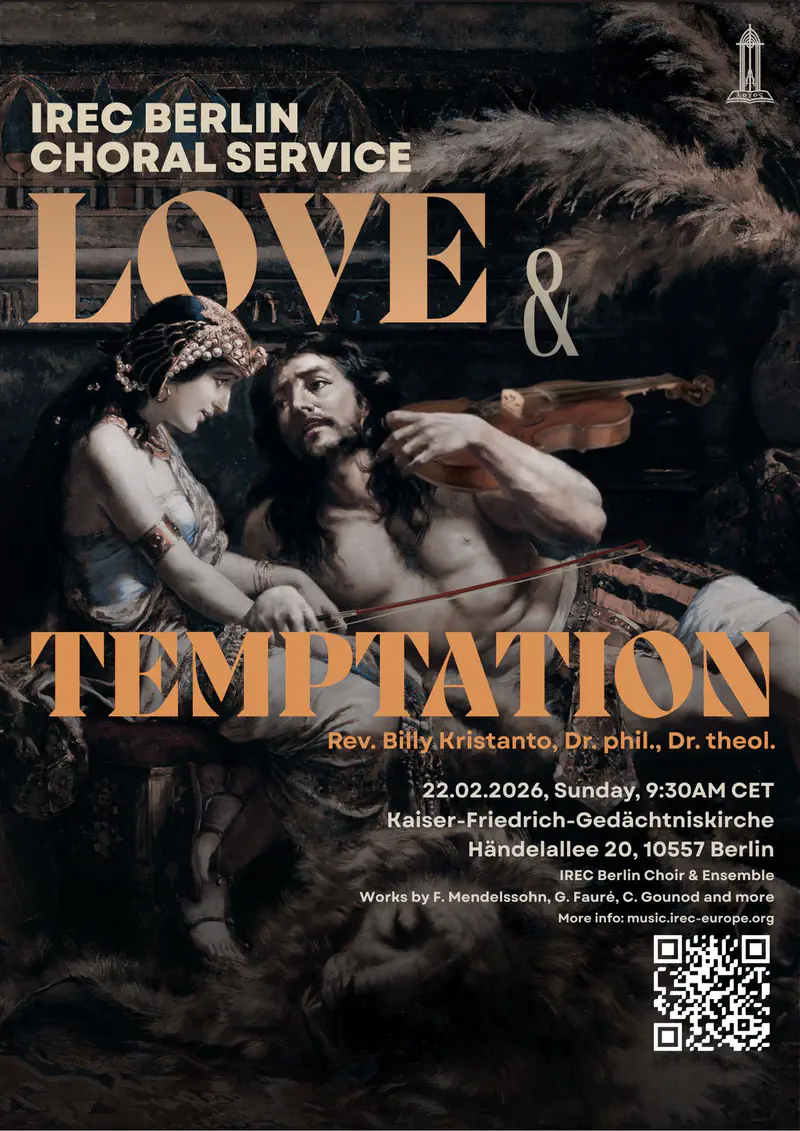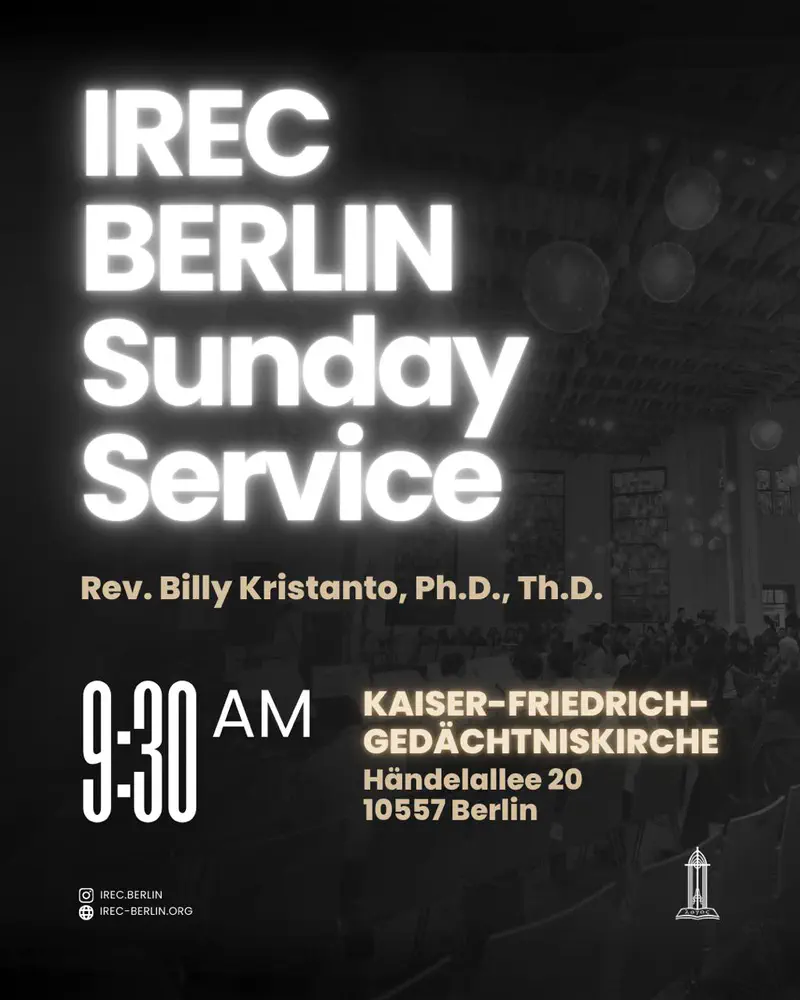IREC BERLIN
International Reformed Evangelical Church in Berlin
We are Bible-believing, Reformed church that aims to share the Gospel to the people in Berlin. Join us every Sunday for worship.
Every Sunday at 09:30 AM
Händelallee 20, 10557 BerlinSunday Service
Every Sunday
09:30 AM
Prayer Communion
Every Saturday
10:30 AM
Bible Study
Every Saturday
11:00 AM




